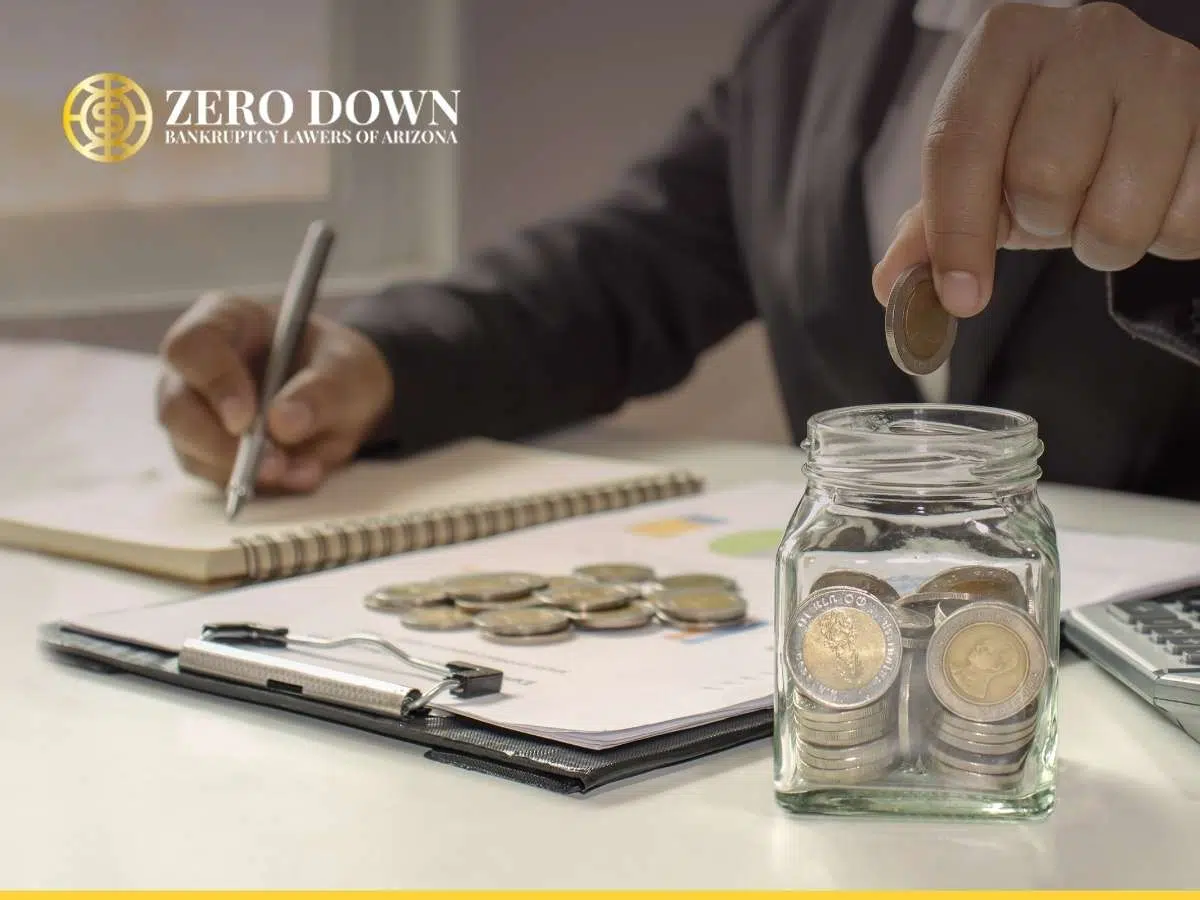Consequences Of Withdrawing From Your Retirement Savings Plans Early
Debt doesn’t just happen to people who are careless with their money. It can also happen to people who have worked hard their entire lives and built up retirement savings for their old age. But even if you have a sizable 401(k), you might have a medical emergency, get divorced, or experience a similar life event that can leave you with debt. If this happens, you might wonder if you should withdraw from your retirement savings to address your debt, or if filing bankruptcy would be better. Of course, every situation is unique, so the answer to that will depend on your circumstances. But withdrawing from your 401(k) and other retirement savings plans early can come with massive penalties that make it even harder to pay off debt, and leave you with depleted savings when you retire. You don’t have to make this decision without any guidance. Call our office at 480-833-8000 for your free consultation.
Withdrawing From Retirement Savings Accounts
Although the money in your retirement savings is yours, you can face severe penalties from withdrawing before you are 59.5 years old. First of all, you will face a 10% deduction from any amount you withdraw as a tax. The IRS will also withhold 20% of any amount you withdraw. Additionally, withdrawing from your retirement account means less savings for when you actually do retire. So unless you have a relatively small debt with pressing and imminent collection, withdrawing from your retirement savings may be an ineffective way to pay down debts. Depending on your circumstances, other forms of debt relief, including bankruptcy, may be more efficient.
What Are My Bankruptcy Options?
Most people who file bankruptcy do so either under Chapter 7 or Chapter 13, with Chapter 7 being more common. You won’t always get the choice between both. First of all, you must reside in Arizona for at least 180 days before you are eligible to declare bankruptcy here. Secondly, you must have been an Arizona resident for at least 2 years before you can utilize our bankruptcy exemptions, or the protections you apply to your property so they can’t be seized to pay your debts.
If you have filed bankruptcy in the past, you will also need to make sure you comply with the mandatory waiting periods between filings. If you previously filed Chapter 7 bankruptcy, you will need to wait 8 years to file Chapter 7 bankruptcy once more. You will only need to wait 4 years if you want to go from Chapter 7 bankruptcy to Chapter 13 bankruptcy. If your first bankruptcy was a Chapter 13, you will need to wait at least 2 years to file another. You will need to wait 6 years if you wish to file a Chapter 7 bankruptcy after a Chapter 13 bankruptcy. If you meet all of the requirements described above, it will be time to determine which chapter(s) for which you qualify.
- Chapter 7: You must prove that you don’t have sufficient income to make significant progress on your debts to qualify for Chapter 7 bankruptcy. There are two ways to do this. The first is by showing that your average income over the past 6 months falls below Arizona’s median income for your household size. If your income exceeds Arizona’s median, you will need to use the Means Test. This test is conducted by subtracting mandatory expenses (think taxes, student loans, child support, etc.) from your average income. Depending on the figure you reach, you may qualify for Chapter 7 bankruptcy. If you aren’t sure about your qualifications, make sure to run the income tests with an experienced Arizona bankruptcy attorney.
- Chapter 13: In Chapter 13 bankruptcy, you aren’t trying to prove you don’t have enough income to pay your debts- you want to prove that you do. Chapter 13 bankruptcy reorganizes your debts into a payment plan. The length of your payment plan- 3 or 5 years- will depend on how your income compares to the Arizona median income. If you can’t pay off your bankruptcy fees, secured debts (except your home mortgage, in most cases), and priority debts in your payment plan, your plan won’t be confirmed.
Will My Assets Be Protected In Bankruptcy?
One of the main reasons that people choose withdrawing from their retirement funds over filing bankruptcy is the fear that all of their assets will be taken away by the bankruptcy trustee. For example, if you are going to lose your house if you file Chapter 7 bankruptcy, this could be one of the rare situations where it might be preferable to withdraw from your 401(k) and accept all the penalties that come with it. When you file Chapter 7 bankruptcy, you must apply Arizona state exemptions (Arizona doesn’t allow federal exemptions) to everything you own, or your property can be seized to pay your debts. In Chapter 13 bankruptcy, you may be required to contribute any excess value of your assets above their applicable exemptions to your payment plan.
Arizona’s homestead exemption, which represents how much equity you can hold in your home rather than its market value, is $150,000. This can only be used on your primary residential home, rather than an investment property you rent out to vacationers or tenants. This exemption doesn’t change whether you’re single or married. But most of the personal property exemptions in Arizona double for married couples. For example, the motor vehicle exemption in Arizona is $6,000. However, a married couple can use this exemption to protect $6,000 each in two vehicles or $12,000 in one vehicle. The $6,000 exemption for household goods and furnishings also doubles for married couples. However, one of Arizona’s trickiest exemptions to work around is the cash on hand exemption. This exemption protects both the cash in your wallet and the funds in your bank account on the day you file your case. For an individual, this exemption in Arizona is $300, and it is $600 for married couples. With the current prices of groceries, housing, gas, etc., it can be difficult to limit yourself to that much money, even for a day. You will need to coordinate with your Arizona bankruptcy attorney to make sure that your case is filed on the correct day, so your filing doesn’t coincide with payday, when your rent is due, and more.
Making Filing Bankruptcy More Affordable Than Ever
One of the factors in your decision between withdrawing from your retirement funds and filing bankruptcy could be the sheer cost of filing bankruptcy. Even though bankruptcy is meant to help people with financial problems, the up-front costs to file can be surprisingly high. That’s why our Arizona bankruptcy team offers Chapter 7 bankruptcy payment plans that start after your case is filed. If eligible, your bankruptcy fees will be payable over 12 months post-filing with 0% interest. Your timely payments will even help improve your credit score after your bankruptcy has been discharged. Arizona Zero Down Bankruptcy offers flexible payment options for those who file under Chapter 13. You can check your eligibility and get your questions about bankruptcy answered for free with your initial consultation. To schedule, fill out our online form or call 480-833-8000 today.
Arizona Offices
Phoenix Location:
343 W Roosevelt Street, Suite #100
Phoenix, AZ 85003
Email: [email protected]
Phone: 602-609-7000
Mesa Location:
1731 West Baseline Rd., Suite 101
Mesa, AZ 85202
Email: [email protected]
Glendale Location:
20325 N 51st Avenue, Suite #134
Glendale, AZ 85308
Email: [email protected]
Tucson Location:
2 East Congress, Suite #900
Tucson, AZ 85701
Email: [email protected]










